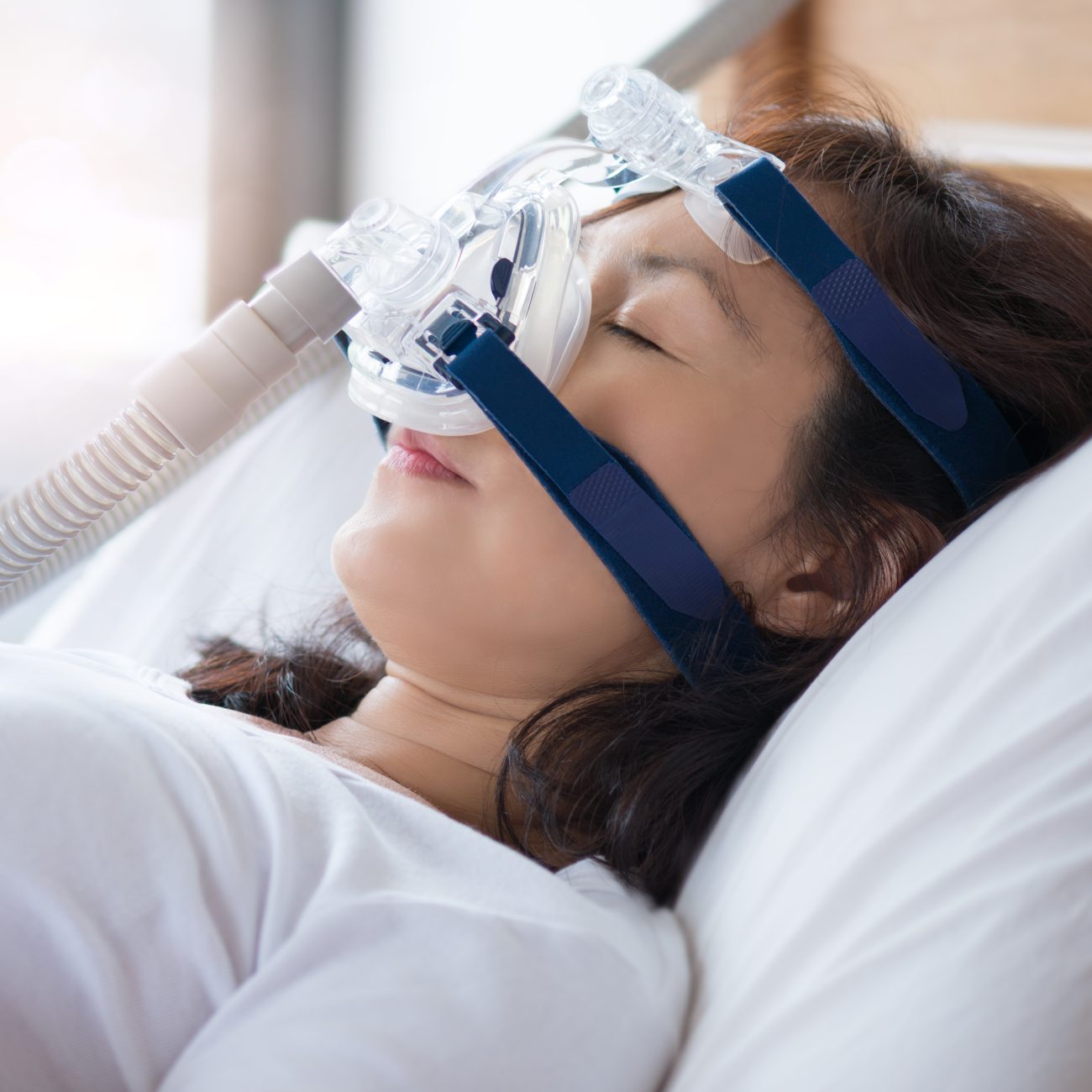Sleep Apnea Is A Common Yet Serious Sleep Disorder That Affects Millions Of Americans Annually.
Everything You Need To Know About
Sleep Apnea
This disorder has far-reaching consequences beyond just producing loud snoring; it's been aptly named the "silent killer."
Shockingly, sleep apnea sufferers die on average a decade earlier than those without this condition.
Even worse, 85% of people with severe sleep apnea are unaware they have it!
Sleep apnea is a sleep disorder characterized by pauses in breathing or shallow breaths during sleep. These pauses can last several seconds to minutes, and they occur repeatedly throughout the night. The lack of oxygen can have a negative impact on one's health and well-being, leading to fatigue, headaches, difficulty concentrating, and an increased risk of heart disease and stroke. People with sleep apnea may not even be aware that they are waking up in their sleep, resulting in being misdiagnosed for many years without treatment.
Central & Obstructive
Types Of Sleep Apnea
• Obstructive sleep apnea (OSA) is the more common type of disordered breathing that arises when throat muscles become too relaxed and impede airflow into the lungs. This is the most widespread manifestation of sleep apnea and is the easiest to treat.
• Central sleep apnea (CSA) is a disorder in which the brain fails to communicate with the muscles that control breathing, causing pauses in respiration.
Both types of sleep apnea can lead to serious health complications if left untreated, including an increased risk of heart attack, stroke, and high blood pressure.
If you suspect that you may be suffering from sleep apnea, it is essential to seek advice from your healthcare provider. A thorough diagnosis via a comprehensive sleep study can help identify the ideal course of treatment for your condition, so you can start taking steps towards healthier living and alleviating any related symptoms.




Do You Have Sleep Apnea?
Sleep Apnea Symptoms
It is oftentimes difficult to recognize which type of sleep apnea you have due to the similar symptoms between obstructive and central sleep apneas. General signs associated with both types include:
• Loud snoring.
• Gasping for air, choking sound during sleep.
• Daytime fatigue or sleepiness.
• Insomnia or other sleeping difficulties.
• Morning Headaches.
• Dry mouth and/or sore throat when awoken.
• Difficulty concentrating or staying focused on tasks.
• Irritability or mood swings throughout the day.
• Periodic episodes of apnea, or cessation of breathing while sleeping, which have been reported by another person.
CPAP • AUTO-CPAP • BIPAP
We Have Solutions
• If you suffer from moderate to severe obstructive sleep apnea, then Continuous Positive Airway Pressure (CPAP) might be the solution for you. This device delivers a consistent stream of air pressure via a mask while you sleep, which is slightly higher than that of normal room air. The delivered pressure support helps keep your upper respiratory passages open and thus avoids apnea episodes as well as snoring fits.
• Auto-PAP, otherwise known as auto-CPAP or self-adjusting CPAP, is designed to automatically adjust the pressure of air given while you sleep in order to provide optimal comfort. The machine employs an advanced algorithm that determines precisely how much pressure each breath requires for inhalation.
• Bilevel Positive Airway Pressure (BIPAP) can be a beneficial alternative for those who are struggling to adjust to CPAP machines or whose sleep apnea is not being sufficiently managed by them. These devices effectively raise the air pressure when you breathe in and decrease it as you exhale, making the therapy more tolerable and helpful for many people with obstructive sleep apnea.




Masks are like shoes—you have to get the right fit.
Finding Your Mask
Seeking the perfect CPAP mask and headgear to treat your sleep apnea? With a variety of styles and sizes available, we understand that finding the right fit is key. Everyone's needs, tastes, and facial features are unique - you may even need to try multiple masks before settling on one that works best for you!
Choosing the best face mask might take some trial and error; different models, styles, and brands may all have varying sizes. For maximum comfort and functionality, you should consider trying out a variety of masks until you find your perfect fit.
Find Your Perfect Fit
Masks Designed With You In Mind
CPAP masks come in three distinct styles, with all sizes catered for. If you are a woman and are looking for something that fits your unique facial features, some brands design “For Her” versions of these masks - specifically tailored to the shape of a female face.
Although a lightweight, small mask may seem ideal, there are other considerations that should be explored. For example, masks covering more of the face tend to offer superior protection against leaks and improved treatment overall. Even though these masks may weigh slightly more than others, you might find that full-face masks simply fit better - in the end it all comes down to personal preference as well as how certain styles will accommodate one's unique facial shape.
Full-face Masks
Cover your nose and mouth.
Nasal Masks
Fit over your nose only, offering a lighter fit than full-face masks
Nasal Pillows
Provide an airtight seal around the nostrils while being considerably lighter and less obstructive than full-face masks, offering expansive visibility.


What is sleep apnea?
Sleep apnea is a disorder in which breathing repeatedly stops and starts during sleep. It can cause loud snoring, fatigue, and other serious health problems.
What causes sleep apnea?
The most common cause of obstructive sleep apnea (OSA) is the narrowing or blockage of the airway due to excess tissue in the throat, such as enlarged tonsils or a large tongue. Other causes include obesity and certain medications or drugs that can relax your throat muscles.
Who is most at risk for sleep apnea?
Those who are overweight, have high blood pressure, a narrow airway, or are over the age of 40 are at the highest risk for sleep apnea.
Are there any treatments for sleep apnea?
Yes, there are various treatments available to manage and treat OSA depending on its severity. These include lifestyle changes such as weight loss and quitting smoking, CPAP therapy, and surgeries to widen the airway.
What is CPAP therapy?
CPAP stands for Continuous Positive Airway Pressure. It is a sleep apnea treatment that uses a special mask and machine to provide a steady flow of air into a person's airways during sleep, helping keep them open so that they can breathe normally.
Can sleep apnea be cured?
Sleep apnea is not curable, but it can be managed with lifestyle changes and treatments such as CPAP therapy. Additionally, some patients may choose to have surgery to correct any underlying conditions that are causing their sleep apnea.
Are there any long-term effects of sleep apnea?
Yes, if untreated, sleep apnea can have dangerous long-term health consequences such as high blood pressure, stroke, heart attack, and even death. It is important to seek medical treatment for sleep apnea if you suspect that you may be suffering from it.
What happens if I don't get treatment for sleep apnea?
If left untreated, sleep apnea can cause serious long-term health consequences and increase your risk of stroke, heart attack, high blood pressure, and other serious medical conditions. It is important to seek medical attention if you suspect you have sleep apnea.
Is there a home test for sleep apnea?
Yes, we have home testing kits available that can help diagnose sleep apnea!
What other lifestyle changes can I make to help reduce my symptoms of sleep apnea?
Losing weight, avoiding alcohol and sleeping pills, quitting smoking, and regular exercise can all help reduce symptoms of sleep apnea. Additionally, some people may benefit from using a continuous positive airway pressure (CPAP) machine to help them sleep better.
Reclaim Your Restful Nights!
Get The Help You Need
Sleep apnea is more than a sleeping disorder; it can impact your overall well-being. If you think you might be suffering from sleep apnea, Vitalus Health has got you covered.
Our team of experts are dedicated to providing personalized and comprehensive care. Whether you need a reliable at-home study to identify the appropriate solution for your condition or require help getting properly fit with a mask and equipment, we are here to provide support.
Furthermore, our expertise in this field has made us one of the most trusted providers when it comes to sleep apnea testing and equipment - allowing us to guarantee that you will get back on track with comfortable nights' rest soon! Don't wait any longer: contact our office today to start living comfortably again!

